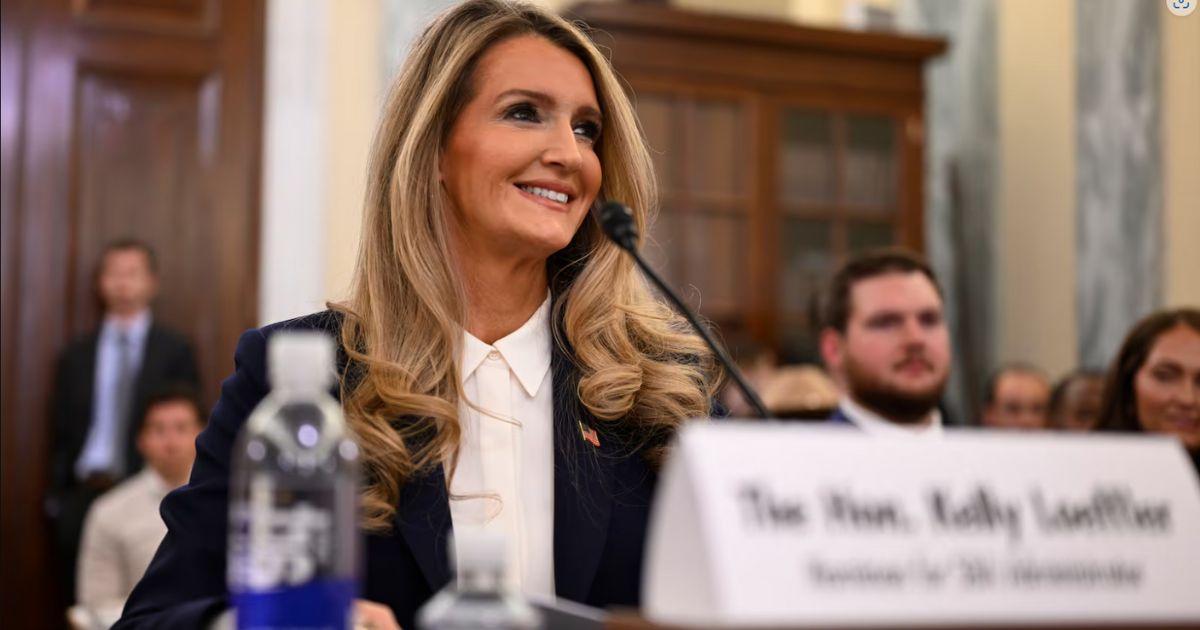In a move underscoring the administration’s commitment to bolstering small businesses, the U.S. Senate has confirmed former Georgia Senator Kelly Loeffler as the new Administrator of the Small Business Administration (SBA).
The confirmation vote, held on February 19, 2025, concluded with a 52-46 majority in favor of Loeffler’s appointment. Her confirmation places her at the helm of an agency that serves as the backbone of American entrepreneurship.
What is the SBA and Why is It Important?
The Small Business Administration (SBA) was established in 1953 with a mission to “aid, counsel, assist, and protect, insofar as is possible, the interests of small business concerns.”
The agency provides capital, contracting opportunities, and consulting services to small businesses across the U.S. It plays a crucial role in ensuring that small enterprises—which account for over 99% of all U.S. businesses—have access to resources that foster growth and innovation.
I received a $50,000 SBA backed loan to start SmartHuslte.com, I sold it years later. A success story!
Key SBA Programs Include:
- SBA Loans: The SBA facilitates loans through partner banks, credit unions, and lenders, making it easier for small businesses to secure funding with favorable terms.
- Government Contracting: The SBA ensures small businesses receive a fair share of federal contracts, helping them compete with larger corporations.
- Disaster Assistance: In times of natural disasters, the SBA provides relief loans to help small businesses recover.
- Entrepreneurial Development: The SBA funds Small Business Development Centers (SBDCs) and Women’s Business Centers (WBCs), offering mentorship and training to entrepreneurs.
The SBA became especially prominent during the COVID-19 pandemic, overseeing the Paycheck Protection Program (PPP) and other emergency relief programs that provided billions of dollars to struggling businesses.
Kelly Loeffler’s Background and Business Experience
Kelly Loeffler brings a wealth of private sector and political experience to her new role.
Before entering politics, Loeffler was the CEO of Bakkt, a financial technology firm specializing in digital assets. She also served as an executive at Intercontinental Exchange (ICE), the parent company of the New York Stock Exchange, which was founded by her husband, Jeffrey Sprecher.
In 2019, Loeffler was appointed to the U.S. Senate by Georgia Governor Brian Kemp, filling the seat vacated by Senator Johnny Isakson. She served until 2021, when she lost her seat to Democrat Raphael Warnock in a highly contested runoff election.
Despite her short tenure in the Senate, Loeffler remained politically active. She founded Greater Georgia, a conservative voter engagement organization, and continued advocating for business-friendly policies.
Additionally, Loeffler contributed $4.9 million to Donald Trump’s 2024 presidential campaign, reinforcing her influence in Republican politics.
Senate Confirmation and Policy Priorities
Loeffler’s confirmation process was not without controversy. While she secured the position with a 52-46 vote, opposition came from Democratic Senators, including Georgia’s Jon Ossoff and Raphael Warnock, who questioned her commitment to small businesses, given her significant personal wealth and previous corporate ties.
Supporters, however, argue that her financial expertise and business acumen make her an ideal leader for the SBA.
In a statement following her confirmation, Loeffler vowed to “cut red tape, expand access to capital, and unleash opportunity” for small businesses across America.
What’s Next for the SBA Under Loeffler?
As SBA Administrator, Loeffler will oversee an agency that directly supports millions of entrepreneurs. Some of the pressing issues she will need to address include:
– Access to Capital: Ensuring small businesses can secure loans amid rising interest rates.
– Federal Contracts: Expanding opportunities for minority-owned and women-owned businesses.
– Disaster Relief: Strengthening SBA’s response to economic downturns and natural disasters.
– Regulatory Reform: Reducing bureaucratic hurdles that prevent small businesses from thriving.
Her tenure will be closely watched by small business owners, lawmakers, and economic analysts alike.
With the SBA’s critical role in shaping the nation’s economy, her policies and leadership could define the future of American entrepreneurship.
Conclusion
Kelly Loeffler’s appointment as SBA Administrator marks a significant moment for small business policy in the U.S. With billions of dollars in funding and support programs under her agency’s control, her decisions will impact millions of small businesses nationwide.
As she steps into this influential role, the small business community will be watching whether her leadership brings the pro-business reforms she has promised—or if political opposition will challenge her ability to implement major changes.












